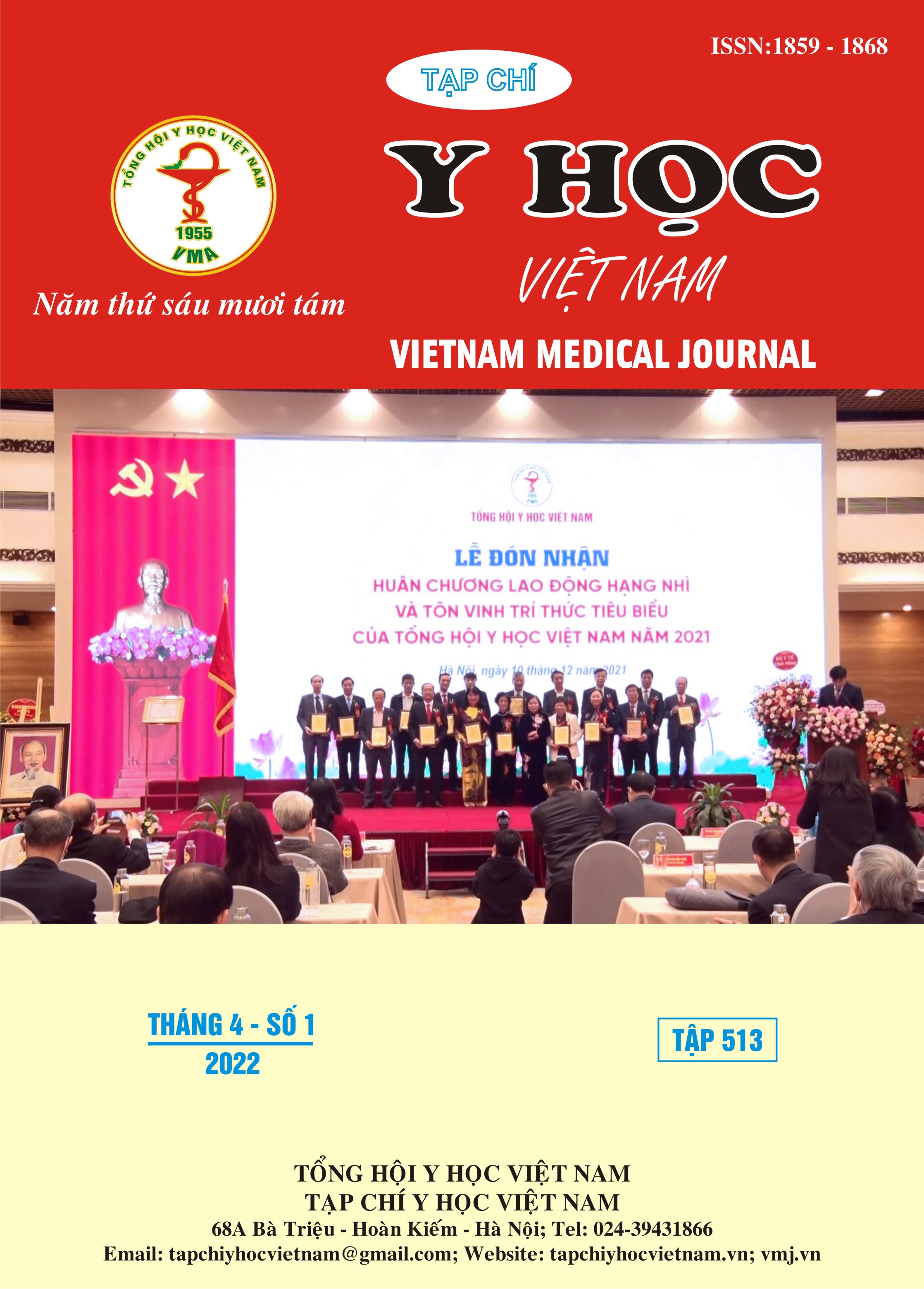DEVELOPMENT OF SPOT-MAS LIQUID BIOPSY FOR EARLIER MULTI-CANCER DETECTION
Main Article Content
Abstract
Background: In 2020, there were 182,563 new cancer cases and 122,690 cancer-related deaths in Viet Nam, the most frequent of which are liver (14.5%), lung (14.4%), breast (11.8%) and colorectal (9.0%) cancers. Multi-cancer early detection could reduce 78% of patients diagnosed with late-stage cancer and decrease 26% of the cancer mortality. In addition, early cancer detection could improve the efficacy of cancer treatment and reduce medical cost. Objective: In this study, we developed a liquid biopsy assay for early multi-cancer detection, known as SPOT-MAS. Method: The SPOT-MAS uniquely combined four features of ctDNA (DNA released from tumor into the bloodstream) including 450 targeted hypermethylation regions, genome-wide hypomethylation, length profile of ctDNA and genome-wide copy number variation and advanced machine learning engine to increase the chance of detecting rare ctDNA in earlier cancer. This combinatorial analysis allows to detect multi-cancer in a single test. The blood samples were collected from 285 cancer patients and 222 healthy subjects. Results: The sensitivity, specificity, positive predictive value and negative predictive value of SPOT-MAS test were 95,9% (95%CI: 95,8-96), 95,4% (95%CI: 95,2-95,3) and 75,7% (95%CI: 74,7-76), respectively. Conclusion: The SPOT-MAS showed excellent performance in detecting earlier multi-cancer from a simple blood draw.
Article Details
Keywords
Liquid biopsy, ctDNA, early cancer detection
References
2. Cohen JD, Li L, Wang Y, Thoburn C, Afsari B, Danilova L, Douville C, Javed AA, Wong F, Mattox A (2018) Detection and localization of surgically resectable cancers with a multi-analyte blood test. Science 359:926–930
3. Cristiano S, Leal A, Phallen J, Fiksel J, Adleff V, Bruhm DC, Jensen SØ, Medina JE, Hruban C, White JR, Palsgrove DN, Niknafs N, Anagnostou V, Forde P, Naidoo J, Marrone K, Brahmer J, Woodward BD, Husain H, van Rooijen KL, Ørntoft M-BW, Madsen AH, van de Velde CJH, Verheij M, Cats A, Punt CJA, Vink GR, van Grieken NCT, Koopman M, Fijneman RJA, Johansen JS, Nielsen HJ, Meijer GA, Andersen CL, Scharpf RB, Velculescu VE (2019) Genome-wide cell-free DNA fragmentation in patients with cancer. Nature 570:385–389
4. Đỗ Đình Công (2009) Các yếu tố ảnh hưởng đến chẩn đoán ung thư đại trực tràng. Học TPHCM 13:22–25
5. Hubbell E, Clarke CA, Aravanis AM, Berg CD (2021) Modeled Reductions in Late-stage Cancer with a Multi-Cancer Early Detection Test. Cancer Epidemiol Prev Biomark 30:460–468
6. Liu MC (2021) Transforming the landscape of early cancer detection using blood tests—Commentary on current methodologies and future prospects. Br J Cancer 124:1475–1477
7. Siegel RL, Miller KD, Fuchs HE, Jemal A (2021) Cancer statistics, 2021. CA Cancer J Clin 71:7–33
8. Torre LA, Siegel RL, Jemal A (2016) Lung cancer statistics. Lung Cancer Pers Med 1–19
9. Van Thuan T, Anh PT, Van Tu D (2016) Cancer control in Vietnam: where are we now. Cancer Control 99:


